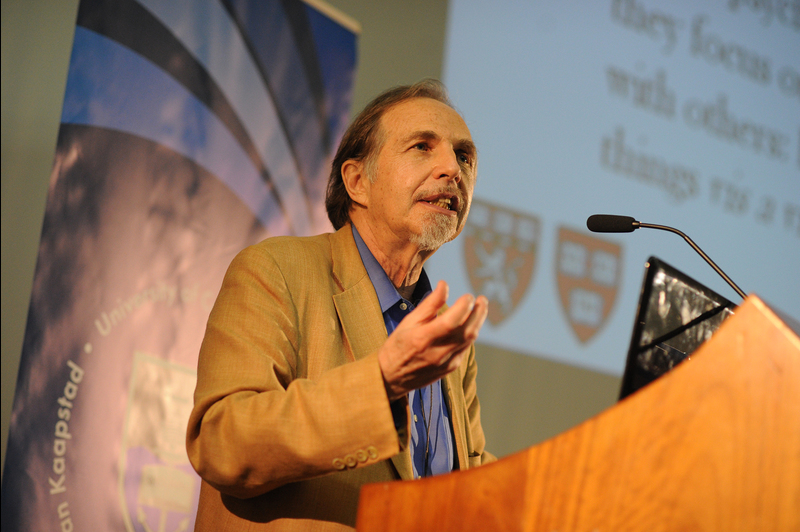Caregiving and goodness at the root of humanity
13 February 2013 | Story by Newsroom
Download the podcast of Prof Arthur Kleinman | Watch the video.
If caregiving starts in the family, and builds outwards, what are the implications of care as a broader ethic?
This was the question posed by Arthur Kleinman at the first Vice-Chancellor's Open Lecture of the year on Thursday, 7 february. Kleinman is a Professor of Medical Anthropology and Professor of Psychiatry in the Department of Global Health and Social Medicine at Harvard Medical School.
Speaking on Caregiving and Goodness: Their Broader Role in Society, Kleinman said the core tasks of caregiving that face family, close friends, sufferers themselves and professionals included practical assistance with daily living and with the amelioration of pain and suffering, as well as 'an acknowledgment and affirmation of personhood".
As much an anthropologist as a psychiatrist, Kleinman is a former Chair of Harvard's Department of Global Health and Social Medicine and the Department of Anthropology. He is currently the Director of the Harvard Asia Centre and holds the Sidney Rabb Professor of Anthropology Chair in the Department of Anthropology.
Kleinman told the gathering that, for the professional involved in caregiving, diagnosis, prognosis and treatment could also be performed "in ways that emphasise their deeply human consequences as well as their technical expertise". He described caregiving as "an existential act that defines our humanity and our relationships with others. It is one of the things that really matters".
In a global culture of cynicism, caregiving was frequently perceived as one of the truly worthy objects of ethical commitment.
On the question of moral experience, he said life was about values. "Just being alive, negotiating important relations with others, doing work that means something to us and living in some particular local place, indicate that moral experience is inescapable," he added.
"Everyone who has ever been in love or built a family knows that there are certain things that money can't buy. Patients with serious illness and their network of caregivers know this too, because those things that really matter to us are threatened and must be defended," Kleinman said.
YouTube Video: Prof Arthur Kleinman delivers a Vice-Chancellor's Open Lecture at UCT
 This work is licensed under a Creative Commons Attribution-NoDerivatives 4.0 International License.
This work is licensed under a Creative Commons Attribution-NoDerivatives 4.0 International License.
Please view the republishing articles page for more information.










